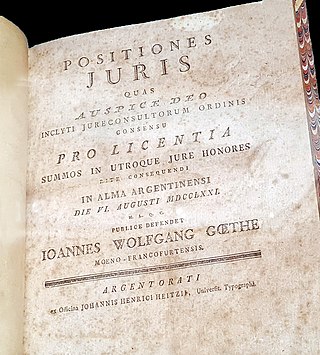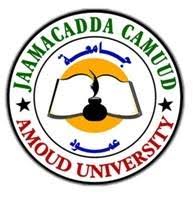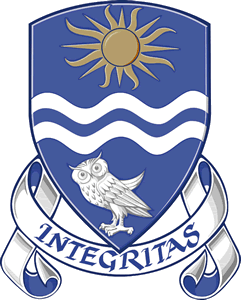
Postgraduate education, graduate education, or grad school, refers to academic or professional degrees, certificates, diplomas, or other qualifications usually pursued by post-secondary students who have earned an undergraduate (bachelor's) degree.
A bachelor's degree or baccalaureate is an undergraduate academic degree awarded by colleges and universities upon completion of a course of study lasting three to six years. The two most common bachelor's degrees are the Bachelor of Arts (BA) and the Bachelor of Science. In some institutions and educational systems, certain bachelor's degrees can only be taken as graduate or postgraduate educations after a first degree has been completed, although more commonly the successful completion of a bachelor's degree is a prerequisite for further courses such as a master's or a doctorate.

Undergraduate education is education conducted after secondary education and before postgraduate education. It typically includes all postsecondary programs up to the level of a bachelor's degree. For example, in the United States, a student pursuing an associate or bachelor's degree is known as an undergraduate student while a student pursuing a master's or doctoral degree is a graduate students. Upon completion of courses and other requirements of an undergraduate program, the student would earn the corresponding degree. In some other educational systems, undergraduate education is postsecondary education up to and including the level of a master's degree; this is the case for some science courses in Britain and some medicine courses in Europe.
A Bachelor of Education is an undergraduate professional degree which prepares students for work as a teacher in schools. In some countries such as Tanzania and Kenya, additional tasks like field work and research are required in order for the student to be fully qualified to teach. It may also be accompanied with or followed by tests for licenses or certifications required for teachers in some areas.
A Master of Laws is an advanced postgraduate academic degree, pursued by those either holding an undergraduate academic law degree, a professional law degree, or an undergraduate degree in a related subject. In most jurisdictions, the LL.M. is the advanced professional degree for those usually already admitted into legal practice.

Vancouver Island University is a Canadian public university serving Vancouver Island and coastal British Columbia. Malaspina College began in 1969 and it has grown into a university which plays an important role in the educational, cultural, and economic life of the region. The main campus is located in Nanaimo; there are regional campuses in Duncan and Powell River as well as a centre in Parksville.

Brandon University is a university located in the city of Brandon, Manitoba, Canada, with an enrolment of approximately 3,375 (2020) full-time and part-time undergraduate and graduate students. The current location was founded on July 13, 1899, as Brandon College as a Baptist institution. It was chartered as a university by then President John E. Robbins on June 5, 1967. The enabling legislation is the Brandon University Act. Brandon University is one of several predominantly undergraduate liberal arts and sciences institutions in Canada.

A licentiate is an academic degree present in many countries, representing different educational levels. It may be similar to a master's degree when issued by pontifical universities and other universities in Europe, Latin America, and Syria.

Harvard Extension School (HES) is the extension school of Harvard University, a private Ivy League research university in Cambridge, Massachusetts. Established in 1910, it is one of oldest liberal arts and continuing education schools in the United States. Part of the Faculty of Arts and Sciences, Extension is Harvard University's part-time, open-enrollment program, offering undergraduate ALB and graduate ALM degrees primarily for nontraditional students. Academic certificates and a post-baccalaureate pre-medical certificate are also offered.
The Diploma of Education, often abbreviated to DipEd or GradDipEd, is a postgraduate qualification offered in many Commonwealth countries including Australia, Sri Lanka, New Zealand, and the United Kingdom.
The School of Education and Human Development is a public school of education in the United States, on the campus of the University of Virginia in Charlottesville. The School of Education and Human Development offers professional programs designed to prepare individuals for a variety of careers related to the practice of education. The current Dean of the School of Education and Human Development is Stephanie J. Rowley.

Education in Belgium is regulated and for the most part financed by one of the three communities: Flemish, French and German-speaking. Each community has its own school system, with small differences among them. The federal government plays a very small role: it decides directly the age for mandatory schooling and indirectly the financing of the communities.

The Faculty of Education is a constituent faculty of McGill University, offering undergraduate and graduate degrees and professional development in education.

A law school is an institution or professional school specializing in legal education, usually involved as part of a process for becoming a judge, lawyer, or other legal professional within a given jurisdiction.

Prairie College is an interdenominational Christian College located in the town of Three Hills, Alberta. Founded as Prairie Bible Institute, classes began on October 9, 1922, on the property of the McElheran family farm.

Nanyang Academy of Fine Arts is a publicly-funded post-secondary arts institution in Singapore, and a constituent college of the University of the Arts Singapore (UAS) from 2024.
Engineering education is the activity of teaching knowledge and principles to the professional practice of engineering. It includes an initial education, and any advanced education and specializations that follow. Engineering education is typically accompanied by additional postgraduate examinations and supervised training as the requirements for a professional engineering license. The length of education, and training to qualify as a basic professional engineer, is typically 5 years, with 15–20 years for an engineer who takes responsibility for major projects.

Amoud University is a comprehensive public university, located in the city of Borama in Somaliland.














